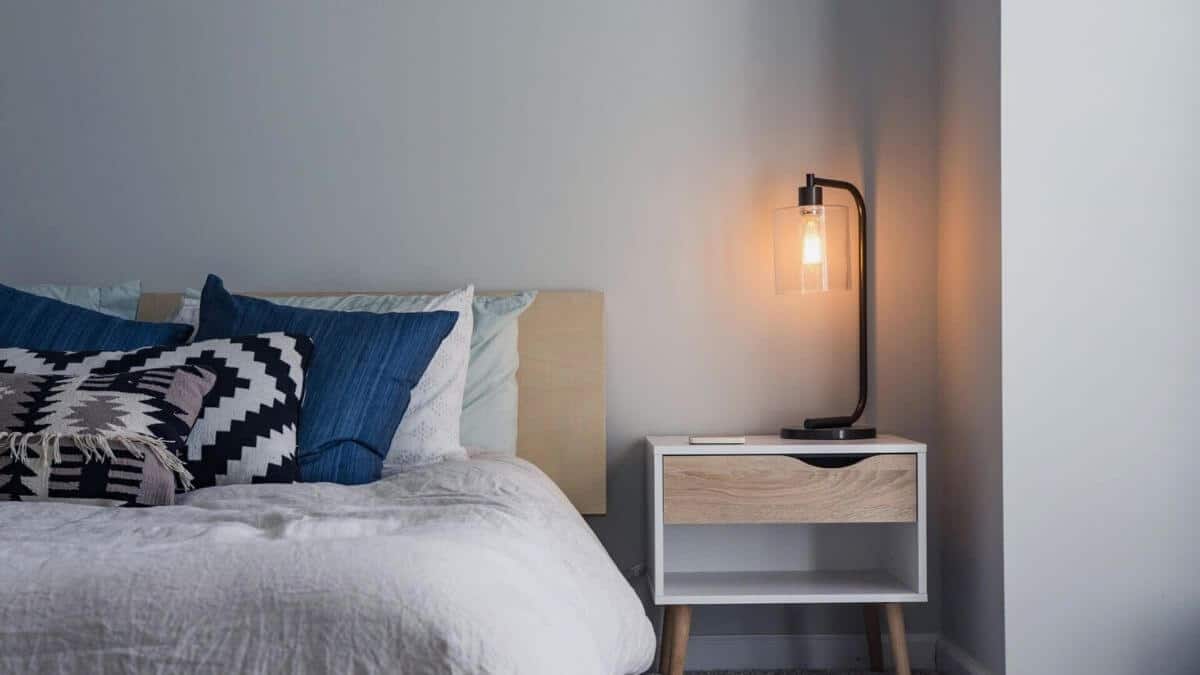Even though it may be a very common topic, a lot of Spanish learners have issues to name objects or to discuss daily life activities related to the bedroom. Both the actions and objects that we use in this room are very common and learning this vocabulary can really help you improve your Spanish skills in real-world, everyday conversations. That’s why in this article, we compiled a list of Spanish vocabulary for the bedroom.
In order to make this process easier for you, this article is divided into four main sections. Here’s the breakdown of what this guide will cover:
- Bedroom vocab nouns: Objects & Furniture
- Verbs to describe activities and daily routines related to the Bedroom
- Building Sentences with the new Words & Verbs (including examples)
- Common phrases related to the Bedroom
By the end of it, you’ll be able to apply over 85 new nouns and verbs into your Spanish conversations.
Spanish Vocabulary for Bedroom Objects & Furniture
In this section, we compiled a list of vocabulary that you can use to talk about different objects and nouns related to the bedroom. Since most Spanish learners have difficulties to know if a noun is masculine or feminine, each of the following words will be preceded by their corresponding article (el, la, los, las). This will help describe the gender and number of these Spanish bedroom words.
Bedroom objects and nouns in Spanish
| Image | English | Spanish |
 | Airbed / Air mattress | La colchoneta / El colchón de aire |
 | Alarm clock | La alarma / El despertador |
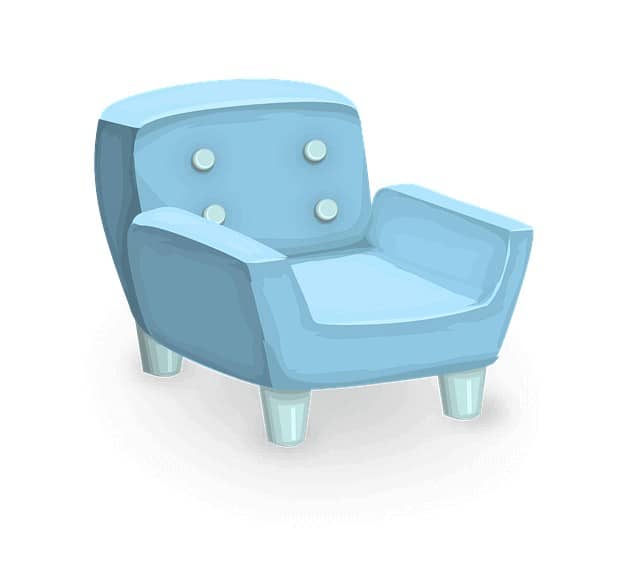 | Armchair | El sillón |
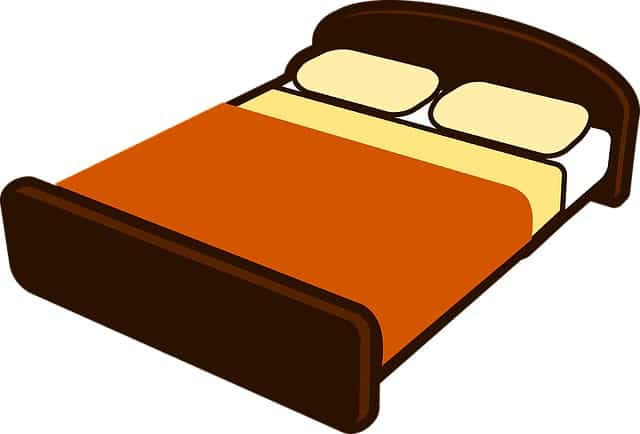 | Bed | La cama |
 | Bed base / bed frame | La base |
 | Bedding | La ropa de cama |
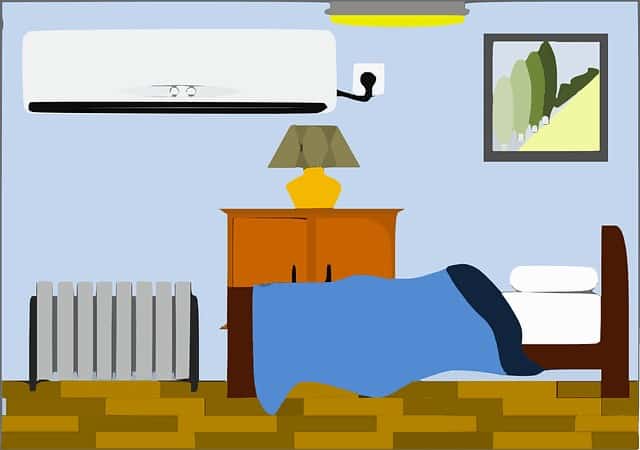 | Bedroom | El cuarto / La habitación / El dormitorio |
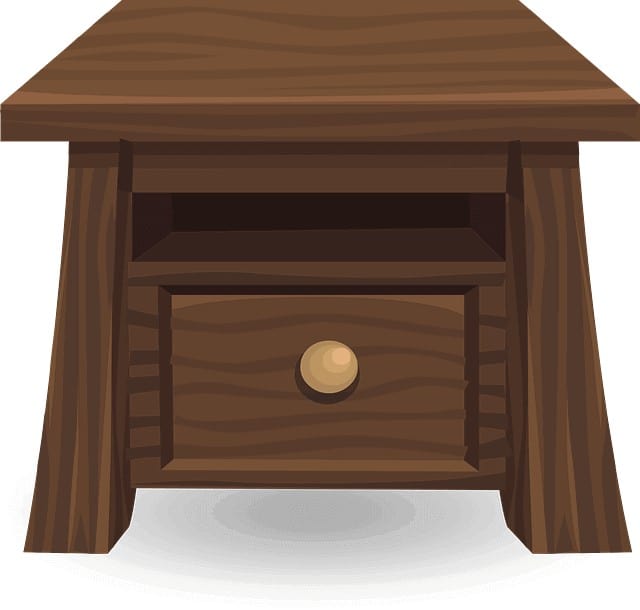 | Bedside table / Nightstand | El buró / La mesita de noche / El velador |
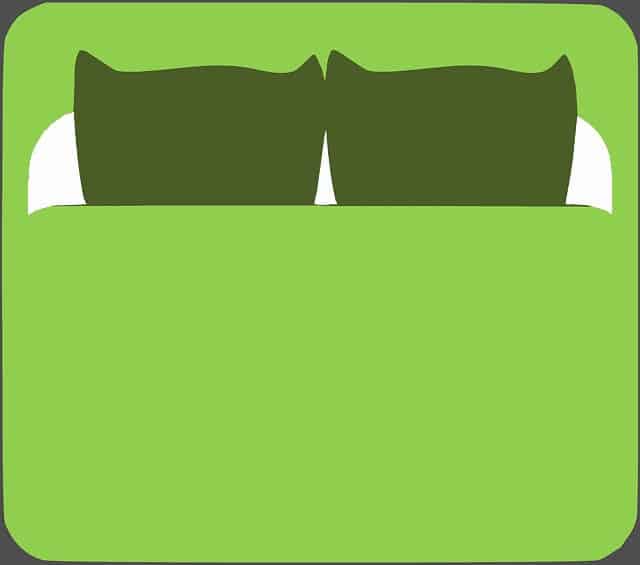 | Bedspread / Quilt | La colcha |
 | Bedtime | La hora de dormir |
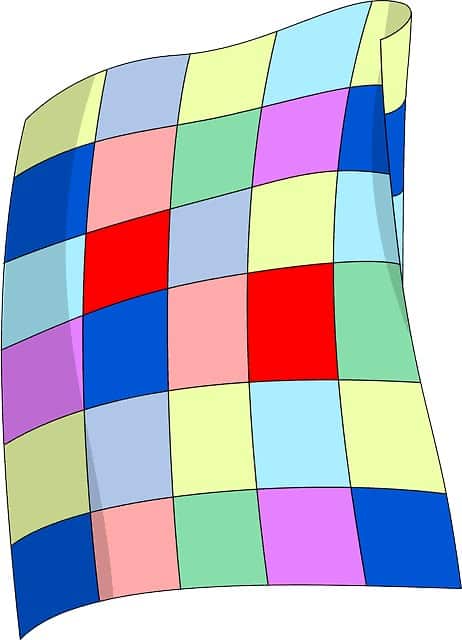 | Blanket | La cobija / La manta |
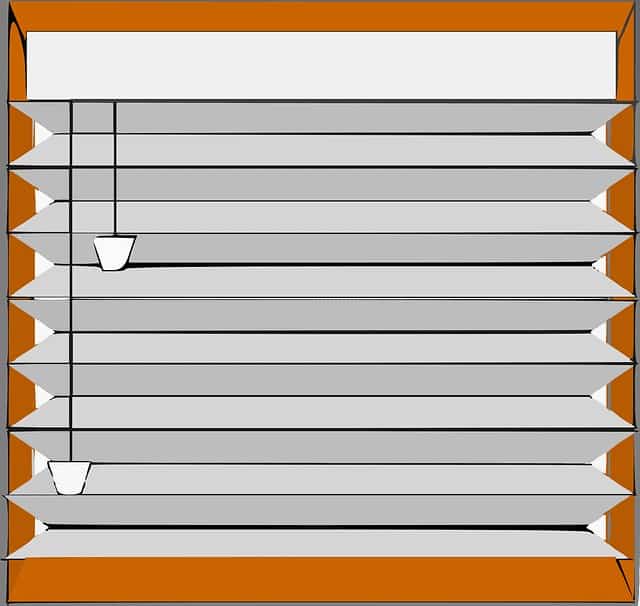 | Blinds | Las persianas |
 | Bulb | El foco / La bombilla |
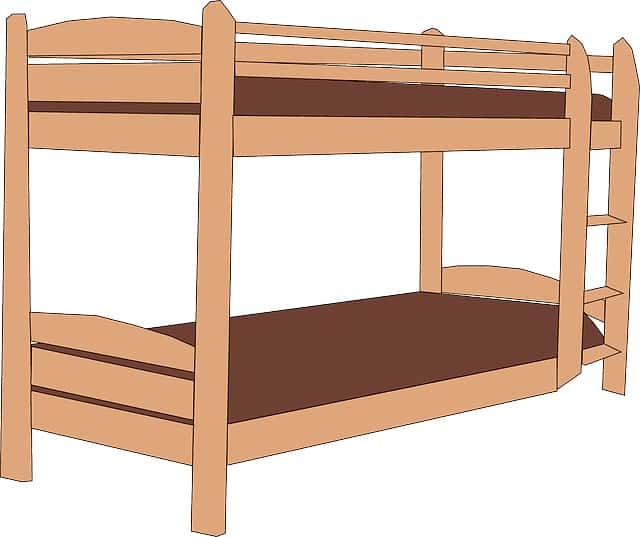 | Bunk bed | La litera / El camarote |
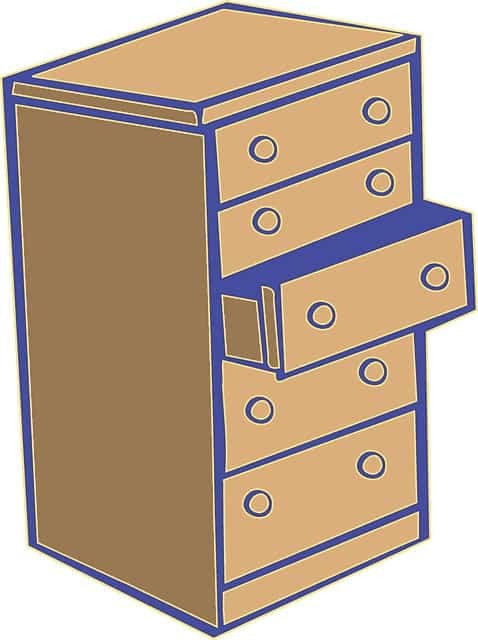 | Chest of drawers / Dresser | La cómoda |
 | Clothes hanger | El gancho de la ropa |
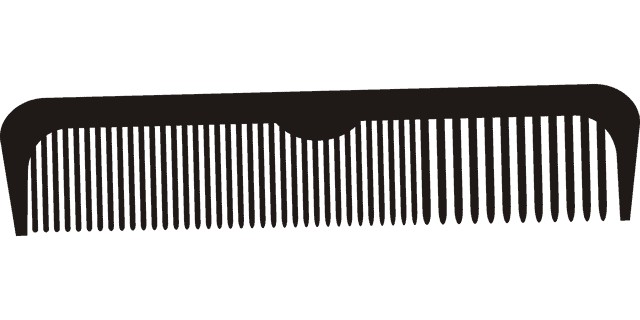 | Comb | El peine |
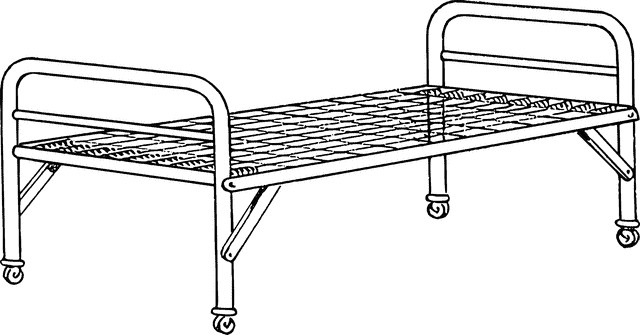 | Cot | El catre |
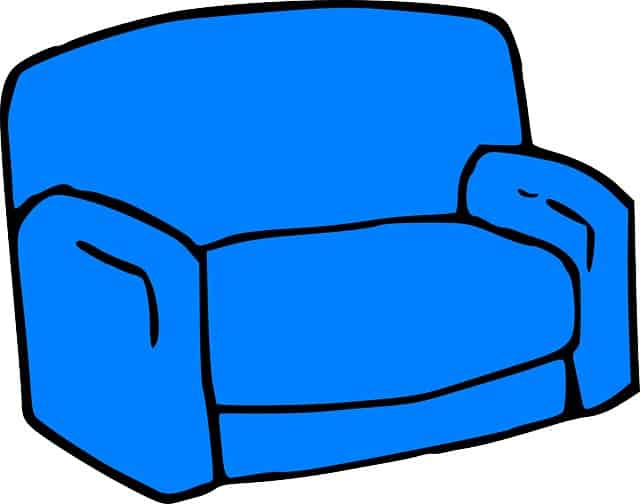 | Couch | El sillón / El sofá |
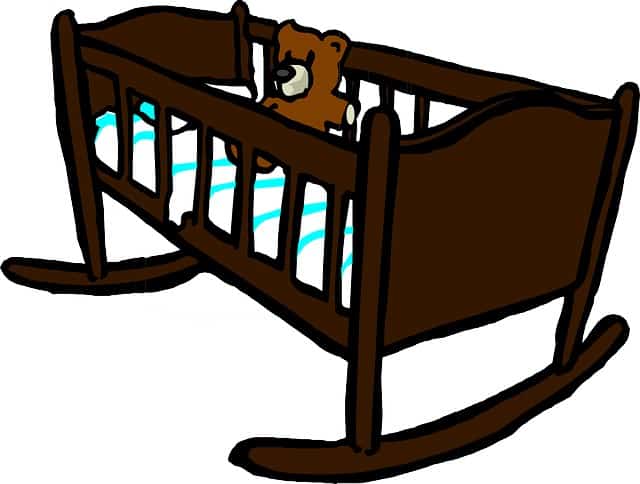 | Crib | La cuna |
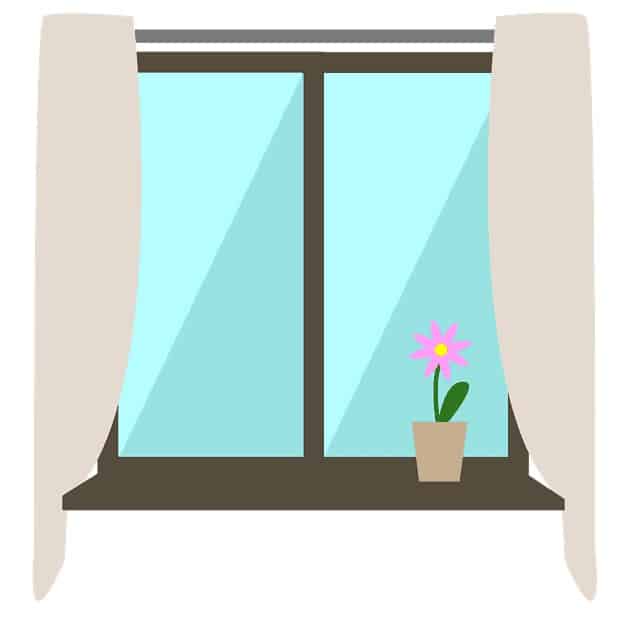 | Curtains | Las cortinas |
 | Cushion | El cojín |
 | Desk | El escritorio |
 | Double bed | La cama matrimonial |
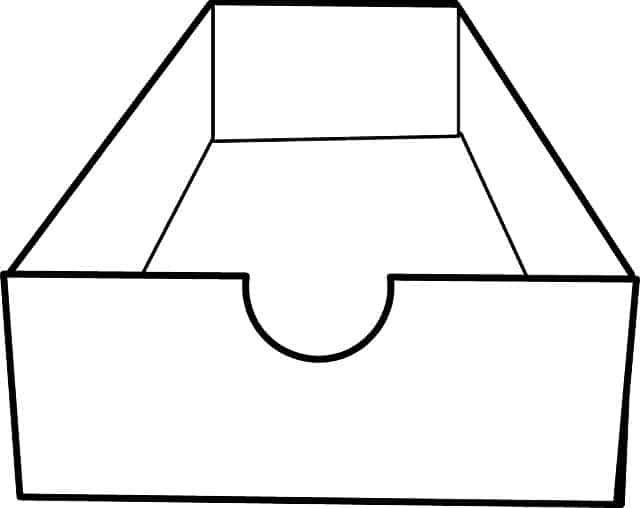 | Drawer | El cajón |
 | Dream / Sleep | El sueño |
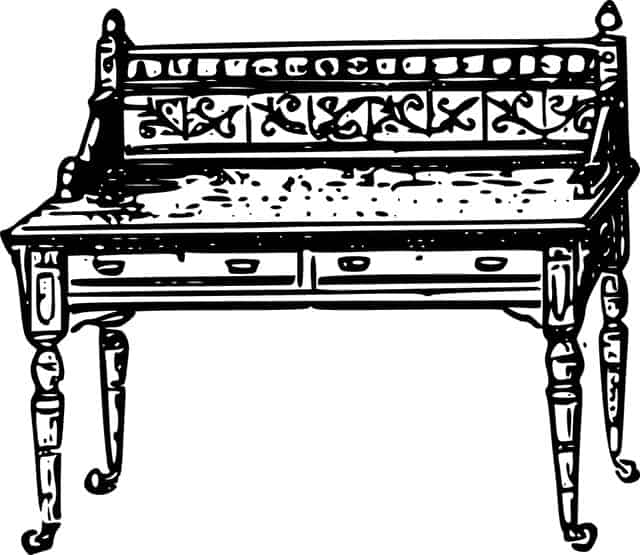 | Dressing table / Dresser | El tocador |
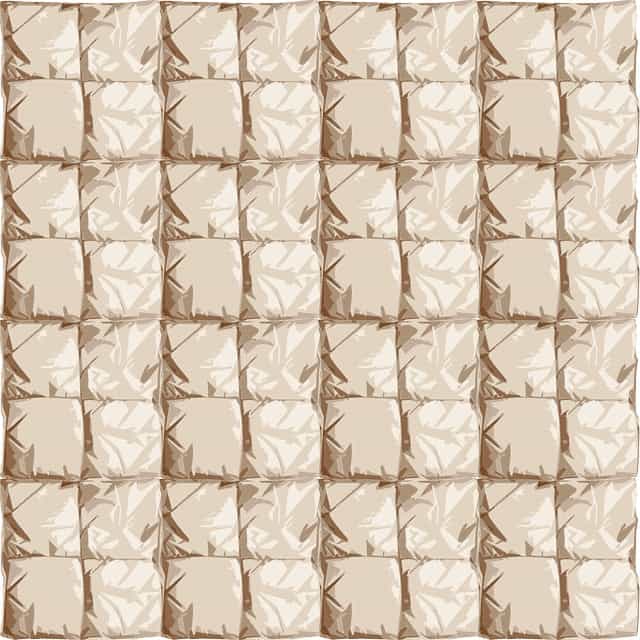 | Duvet/ Eiderdown / Comforter | El edredón |
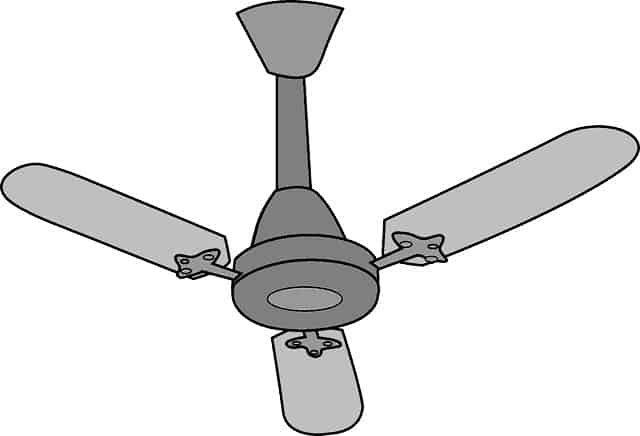 | Fan | El ventilador |
 | Footboard | El pie de la cama |
 | Headboard | La cabecera / El cabecero |
 | Insomnia / Sleeplessness | El insomnio |
 | Jewellery box | El joyero |
 | King size bed | La cama king size |
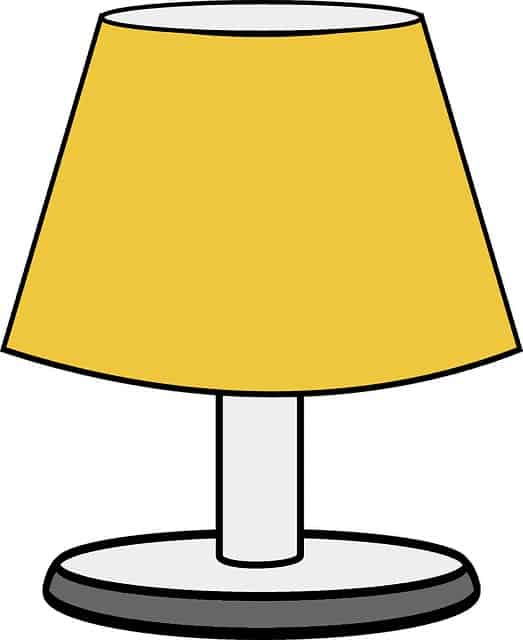 | Lamp | La lámpara |
 | Laundry Hamper | El cesto de la ropa sucia |
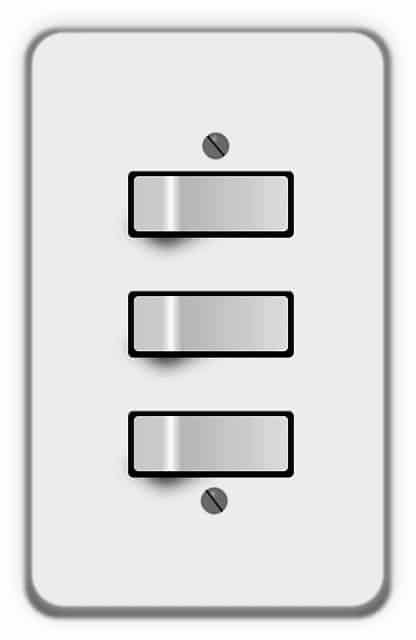 | Light switch | El interruptor de luz |
 | Mattress | El colchón |
 | Mirror | El espejo |
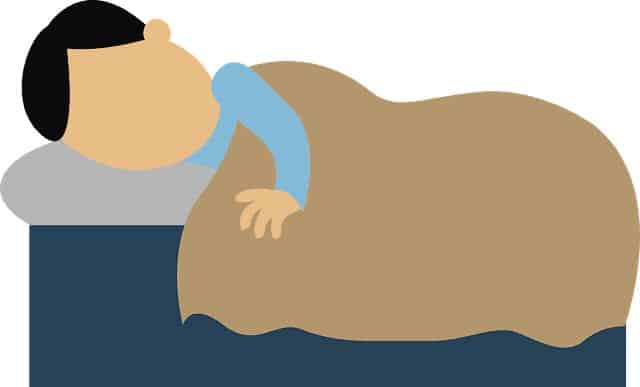 | Nap | La siesta |
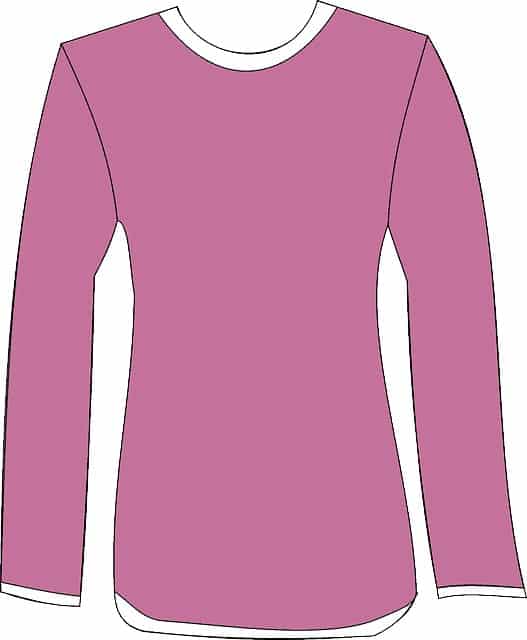 | Nightgown / Nightshirt | El camisón |
 | Nightmare | La pesadilla |
| Pillow | La almohada | |
 | Pillowcase | La funda de la almohada |
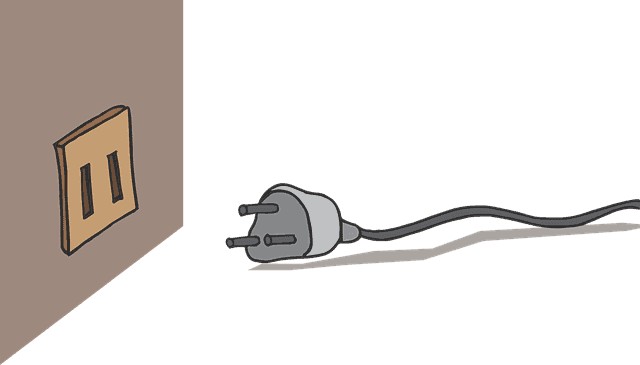 | Power outlet | El enchufe |
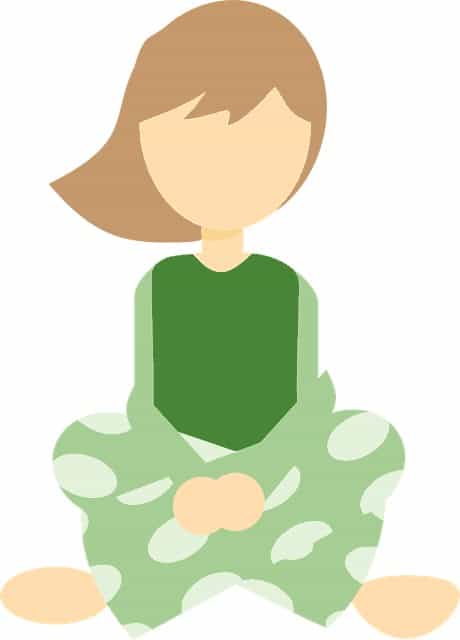 | Pyjamas | La pijama |
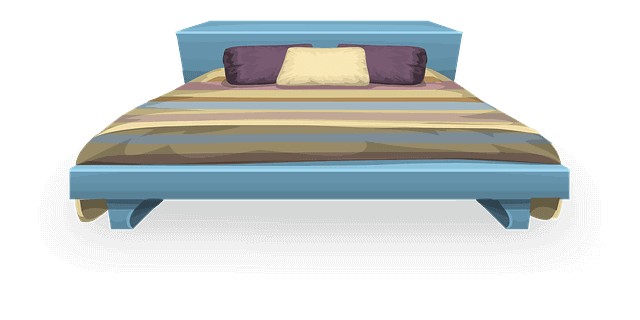 | Queen size bed | La cama queen size |
 | Remote control | El control remoto / El mando a distancia |
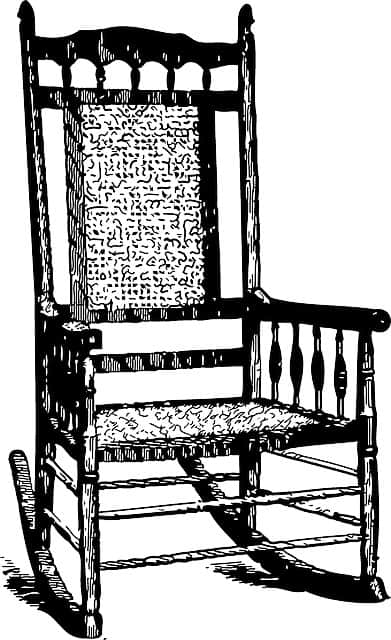 | Rocking chair | La mesedora |
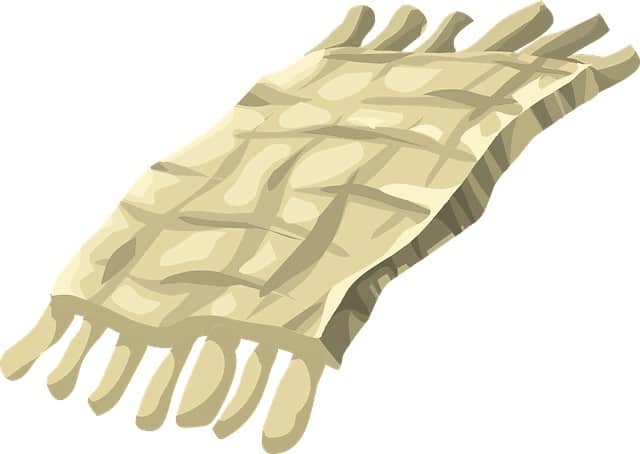 | Rug | La alfombra |
 | Sheet | La sábana |
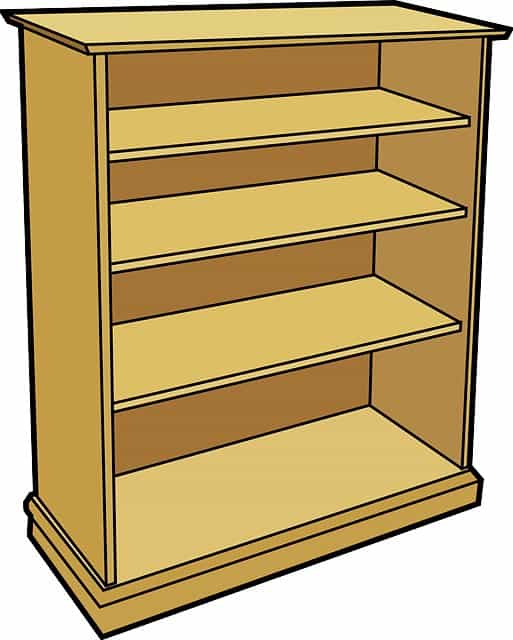 | Shoe cabinet | El zapatero / El porta zapatos |
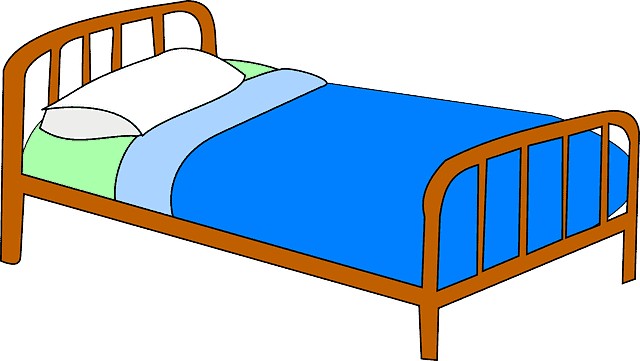 | Single bed | La cama individual |
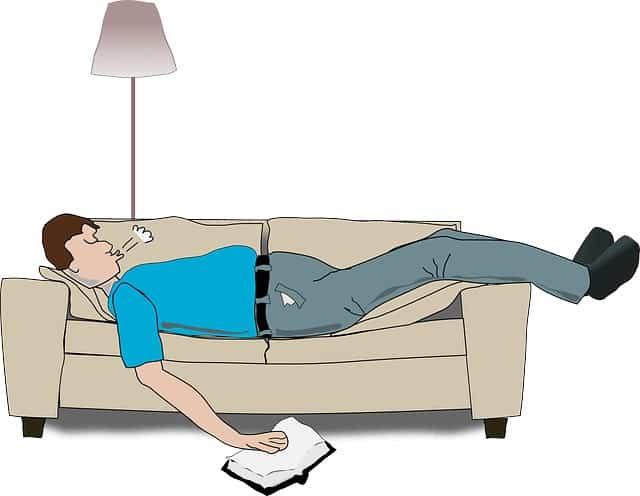 | Snore / Snoring | Los ronquidos |
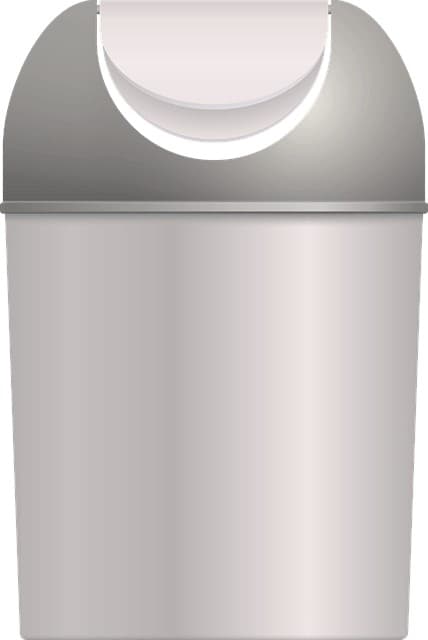 | Trash bin | El bote de basura |
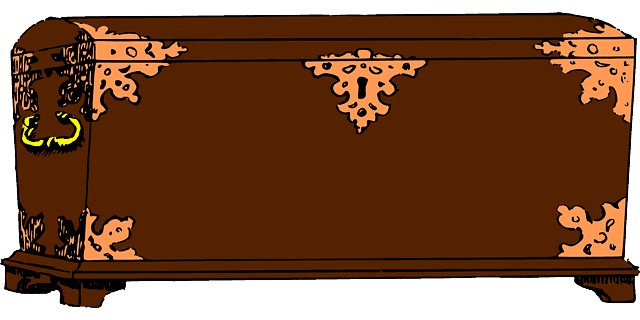 | Trunk | El baúl |
 | TV | La televisión |
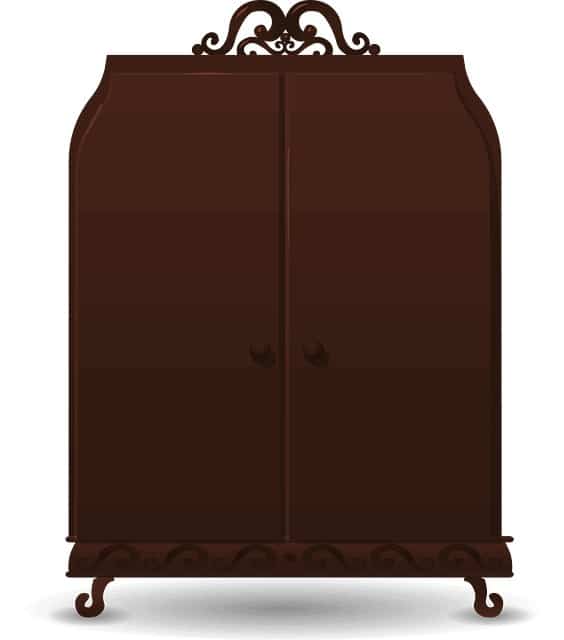 | Wardrobe / Closet | El armario / El clóset / El ropero |
Common Spanish Verbs for the Bedroom
Here is a list of common verbs that you can use to talk about the actions and activities that you do in the bedroom. In this list, you will find a mix of standard and reflexive verbs. Here is a quick way to differentiate them:
| Standard | Reflexive |
| Vestir | Vestirse |
Additionally, in some instances, you may find some Spanish synonyms listed. This is because in some Spanish speaking countries they may have a preference for using one word instead of the other. However, this vocabulary is considered standard Spanish and not specific to one country. As a result, you may use all words.
| English | Spanish |
| To brush | Cepillarse |
| To change | Cambiar |
| To change (yourself) | Cambiarse |
| To clean | Limpiar |
| To close | Cerrar |
| To comb your hair | Peinarse |
| To cover | Taparse / Cubrirse |
| To dream | Soñar |
| To fall asleep | Quedarse dormido |
| To fold | Doblar |
| To get dressed / To put clothes on | Vestirse |
| To go off | Sonar |
| To go to bed | Irse a dormir / Irse a la cama |
| To hang | Colgar |
| To lay down | Acostarse |
| To make the bed | Hacer la cama / Tender cama |
| To nap | Tomar una siesta / Dormir la siesta |
| To open | Abrir |
| To organize | Organizar |
| To organize / To order | Ordenar |
| To put / To set | Poner |
| To put away / To keep | Guardar |
| To reorganize | Reorganizar |
| To rest | Descansar |
| To sleep | Dormir |
| To sleep / To fall asleep | Dormirse |
| To snore | Roncar |
| To stay up late / To stay awake | Desvelarse |
| To stretch | Estirarse |
| To take down | Descolgar |
| To take off | Quitarse |
| To turn off | Apagar |
| To turn on | Encender / Prender |
| To uncover | Destapar |
| To uncover (yourself) | Destaparse |
| To undress | Desvestirse |
| To wake up | Despertarse |
| To wake up / To get out of bed | Levantarse |
| Tu put on / To get dressed | Ponerse |
Activities, Common Phrases & Examples using Kitchen Vocabulary
The best way to incorporate any new set of vocabulary you learn is through practice and applying it to real-world conversations. In this section, we’ll provide you with some usable examples and phrase structures so you start applying the bedroom-related words that you have just learned. In order to do that, the examples will contain nouns and verbs related to the bedroom. Below, we’ll provide you with some very common structures that you can apply to your conversations.
Giving Orders or Recommendations
When talking about the activities and objects that you can find in the bedroom, one of the most common things we do in Spanish is to give orders or recommendations to others.
Here is the phrase structure that you need for these situations. Make sure that the verb and the noun you use are related to the Spanish words for the bedroom listed in previous sections.
[Verb imperative] + [article/possessive pronoun] + [noun]
Ya duermánse, son las doce de la noche Go to sleep now, it’s midnight
¡Quítate los zapatos antes de subirte a la cama! Take your shoes off before getting in the bed!
Cuando estés listo, tiende tu cama, por favor When you’re ready, make your bed, please
Apaga la luz y prende la tele cuando te vengas a dormir Turn the light off and turn the TV on when you come to sleep
¡Tápense bien hoy! Vi en las noticias que va a hacer mucho frío Cover yourself well! I saw on the news that it’s going to be cold
As you may imagine, you could also build negative statements to order people or recommend them not to do things. However, in that case, you would need to make some adjustments to the previous structure.
[No] + [Verb imperative] + [article/possessive pronoun] + [noun]
No abras la ventana, hace mucho frío Don’t open the window, it’s very cold
Sebastián, no te vayas a quedar dormido con los zapatos puestos Sebastian, don’t fall asleep with your shoes on
Mañana en la mañana no tiendas tu cama: vamos a poner sábanas nuevas Tomorrow morning don’t make your bed: we’re going to put new sheets
In this article, you can learn more about how to conjugate the imperative form in Spanish.
Describing your Daily Routines
One of the most useful and common contexts where you can apply bedroom vocabulary to is when talking about your daily routines. In this context, you may need to use both standard and reflexive verbs to talk about your actions.
[Verb conjugated] + [article] + [noun]
Viviana y Armando roncan toda la noche Viviana and Armando snore all night
Beatriz guarda su ropa de cama en el armario Beatriz keeps her bedding in the closet
Siempre cuelgo mi ropa después de quitármela
I always hang my clothes after taking them off
Nosotros ponemos nuestras pantuflas abajo de la cama We put our slippers under the bed
¿Para qué prendes la televisión? Siempre te quedas dormida Why do you put the TV on? You always fell asleep
Even though the previous examples are in the present tense, be aware that you could change the conjugation of the verb to match the tense you need to use. Here are some examples:
¡Roncaste toda la noche! No pude dormir You snored all night! I couldn’t sleep
¿Le cambiaste las sábanas a la cama?
Did you change the sheets?
Voy a poner la alarma a las 7, ¿está bien? I’m going to set the alarm for 7, is that okay?
Mañana dormiré en el catre porque está haciendo mucho calor Tomorrow I’ll sleep on the cot because it’s very warm
Using Reflexive Verbs to Describe your Activities
In Spanish, we also use reflexive verbs when talking about our or someone else’s daily routines. Unlike the ‘standard’ verbs, reflexive verbs are used to express that a person does and receives an action to themself.
[Reflexive verb conjugated] + [complement]
Siempre me destapo a mitad de la noche I always uncover myself in the middle of the night
Yo me cambio de ropa antes de salir de mi cuarto I change my clothes before leaving my room
Juan Pablo y Oscar se desvelan todos los viernes Juan Pablo and Oscar stay up late every Friday
Fernanda se despierta a las seis de la mañana para ir a trabajar Fernanda wakes up at six in the morning to go to work
Antes de preparar la cena, mi compañero de piso se pone ropa cómoda Before preparing dinner, my roommate puts on comfortable clothes
Take Note: Although reflexive verbs are very common in Spanish, keep in mind that they won’t always have a reflexive form in English.
As mentioned earlier, you can change the tense of the verb. Here are some examples:
¿Te desvelaste ayer? Vi tu lámpara prendida Did you stay up late last night? I saw your lamp on
Mi alarma sonó, pero no me desperté My alarm clock went off, but I didn’t wake up
Creo que nos acostaremos temprano, tuvimos un día muy largo I think we’ll lay down early, we had a very long day
Asking about Someone’s Night or Activities
When talking about the bedroom in Spanish, it’s also very common to ask people about their night or their activities. In order to do so, you may need one of the following phrase structures:
¿[Question word] + [verb past tense]?
¿Cómo durmieron? How did you guys sleep?
¿A qué hora te fuiste a dormir? What time did you go to bed?
¿Dónde pusiste las sábanas? Where did you put the sheets?
¿Por qué te levantaste tan temprano? Why did you wake up so early?
Paco, ¿a qué hora pusiste la alarma? Paco, what time did you set the alarm for?
If you would like to make a broader question, you could use the following structure:
¿[Verb past tense] + [complement]?
¿Durmieron bien? Did you sleep well?
¿Ya tomaste tu siesta?
Did you already take your nap?
¿Se taparon bien anoche? Did you cover yourself well last night?
Alonso, ¿tuviste una pesadilla anoche? Estabas gritando Alonso, did you have a nightmare last night? You were screaming
Phrases Related to the Bedroom
Below is a list of common phrases or expressions that are related to the bedroom and that can be very useful when communicating with other Spanish speakers.
| Spanish | English |
| Buenas noches | Goodnight |
| Descansa | Sleep well |
| Dormir hasta tarde | Sleep in / Sleep in late |
| Dormir como un tronco | Sleep like a baby |
| Dulces sueños | Sweet dreams |
| Morirse de sueño | Be dead tired / Be asleep on your feet |
| No pegar ojo | Not be able to sleep / Without sleeping a wink |
| Pegársele las cobijas | Oversleep |
| ¡Qué duermas bien! | Sleep tight / Sleep well |
| ¡Qué descanses! | Sleep tight / Sleep well |
| Sueña con los angelitos | Sweet dreams / Sleep tight |
Voy a acostarme, ¡me muero de sueño! I’m going to lay down, I’m dead tired!
Buenas noches, sueña con los angelitos Good night, sleep tight!
Dormí como un tronco, y ¿tú? ¿Descansaste bien? I slept like a baby, and you? Did you rest well?
Wrapping Up
In this guide, we looked at the most common Spanish words for talking about the bedroom. On top of learning vocabulary for the objects and furniture that you may find in this room, we also provided you with some common verbs that you need to talk about your activities in the bedroom.
Learning vocabulary and common expressions to communicate around the house will help you practice your Spanish skills in real-life situations.
That’s why we also learned some useful and applicable phrase structures that will help put this new Spanish vocab into practice. Finally, we provided you with some common Spanish good night phrases and other expressions related to the bedroom.
Now it’s time for you to start putting into practice your Spanish words for the bedroom.

